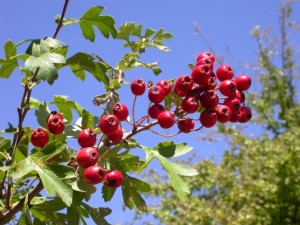When: Sunday, 18 April 2010, from 9.00am to 12.00 noon
Where: Meet at the nature park entrance off Antill Street opposite Carotel, North Watson.
Bring and wear: Sun protection, appropriate shoes and body-covering garden (or old) clothing.
What: This will be a search and destroy (cut-and-daub) exercise to remove briar rose and hawthorn from the nature reserve.
Equipment, refreshments and information on the environmental weeds will be provided
Enquiries: phone 6247 7515, e-mail to admin@majura.org
Download this poster for distribution.
Join the Friends of Mount Majura and the Watson Woodland Working Group for the last woody weed hunt in this season. Our target weeds will be again Sweet Briars and Hawthorns. As usual we will be working in small groups or pairs after a brief introduction of the work and of the safe handling of equipment. Novice weeders please come early for an induction. With a good turn up of volunteers we should be able to knock over the remaining woody weeds in the area.
 Garden plants going bush. Some commonly grown plants in Canberra gardens are invading our bushland where they cause environmental damage. The “garden escapes” may be native plants that have been planted outside their natural range, or plants, which have been introduced from overseas.
Garden plants going bush. Some commonly grown plants in Canberra gardens are invading our bushland where they cause environmental damage. The “garden escapes” may be native plants that have been planted outside their natural range, or plants, which have been introduced from overseas.
Your garden may be a source of garden escapes without you realising it. Birds spread seeds in their droppings after eating the berries of privet, firethorns or cotoneasters. Some garden escapes grow from stems after being dumped as garden waste such as English Ivy, Periwinkle or Japanese Honeysuckle.
Garden escapes cause environmental problems. They smother native plants, prevent natural regeneration and change the natural balance of resources for native animals.
FoMM conducts regular working parties to control garden escapes that have invaded Mount Majura nature reserve. You can help by joining our working bees, by removing potential garden escapes from your garden and by avoiding planting them. Information on garden plants that became environmental weeds is available at our working bees.


